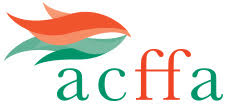Salmon farmers are ready to work with the Nova Scotia government to complete a strong regulatory aquaculture framework and move forward with responsible industry growth that will bring jobs and prosperity to coastal communities.
The Atlantic Canada Fish Farmers Association (ACFFA) welcomed today’s final report from the Doelle-Lahey Panel’s Independent Aquaculture Regulatory Review for Nova Scotia.
“Now that the review has been completed and a report has been submitted, we must continue to move forward to grow the sector and create jobs in rural Nova Scotia,” says Pamela Parker, Executive Director of the ACFFA. “Our industry already meets high regulatory standards that cover all aspects of our farming operations. We look forward to working with the Province of Nova Scotia to finalize any regulatory amendments or, where necessary, the introduction of new regulations in a timely manner.”
Nova Scotia’s salmon farming industry generates about $80 million in economic activity and employs 670 people in direct and supply and service jobs, largely in coastal communities. The industry contributes $41.9 million to Nova Scotia’s GDP.
“Our industry has shown over the past 40 years that we can grow Atlantic salmon in their natural environment with minimal potential for risk to wild stocks or the marine habitat. Salmon farming is bringing much needed jobs and prosperity to Nova Scotia, especially to its coastal communities. However, we have not tapped our potential,” says Parker. “Our region is facing record debt, skyrocketing health care costs, an aging population and high unemployment. Salmon farming represents an extraordinary opportunity to bring economic prosperity to our rural communities – while producing one of the world’s healthiest foods.”
She says it’s time Nova Scotia moved ahead with its Aquaculture Strategy to grow this valuable and important sector.
“Tremendous economic opportunity awaits. Nova Scotia can’t afford to keep saying no to responsible industries that can bring jobs to our province. Salmon farming offers one of the few bright spots of hope in our region’s challenging future. It’s time to embrace it – not shun it,” says Parker.
The Atlantic Canada Fish Farmers Association (ACFFA) is an industry-funded association working on behalf of the salmon farming industry in addition to a wide range of service and supply companies and organizations in Nova Scotia and New Brunswick. Salmon farming employs over 3000 people in our region and has a value of over $356 million to provincial economies.
For more information, please contact:
Pamela Parker, Executive Director
Ph: 506-755-3526
Email: p.parker@atlanticfishfarmers.com


